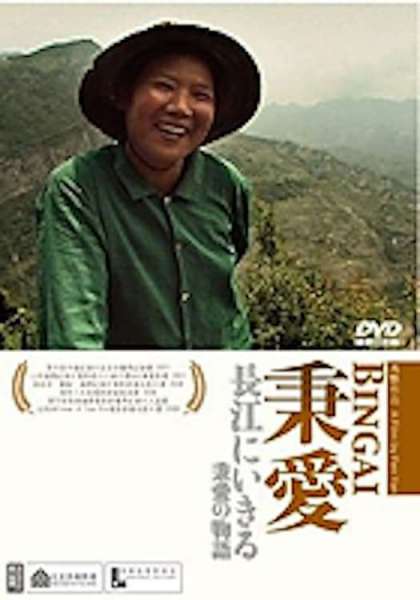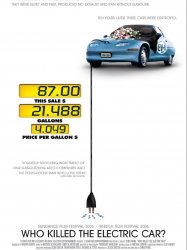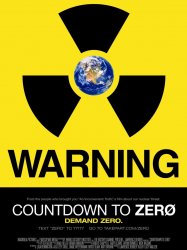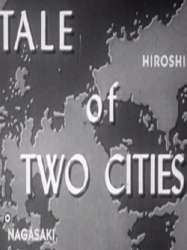Bing'ai is a film of genre Documentary
Bing'ai (2007)

If you like this film, let us know!
- Infos
- Casting
- Technical infos
- Photos
- Videos
- Film quotes
- Characters
- Music
- Awards
Length 1h54
Genres Documentary
Themes Environmental films, Documentary films about environmental issues, Documentary films about technology
Rating33%










Bing'ai (Chinese: 秉爱, also romanized Bingai) is a 2007 Chinese documentary film directed and produced by Feng Yan (冯艳). It is about a peasant woman, Zhang Bing'ai, who refused to relocate during the construction of the Three Gorges Dam.
Comments
Leave comment :
Suggestions of similar film to Bing'ai
There are 8961 with the same cinematographic genres, 1027 films with the same themes (including 136 films with the same 3 themes than Bing'ai), to have finally 70 suggestions of similar films.If you liked Bing'ai, you will probably like those similar films :

Virunga (2014)
, 1h40Directed by Orlando von Einsiedel
Origin United-kingdom
Genres War, Documentary
Themes Films set in Africa, Environmental films, Documentary films about environmental issues, Documentary films about technology
Rating80%





The documentary tells the story of four characters fighting to protect Virunga National Park in the Democratic Republic of Congo, home to the world's last mountain gorillas, against war, poaching, and the threat of oil exploration. Following gorilla caregiver André Bauma, head park ranger Rodrigue Mugaruka Katembo, chief warden Emmanuel de Merode, and the French investigative journalist, Mélanie Gouby, the film focuses on the natural beauty and biodiversity of Virunga, as well as the complex political and economic issues surrounding oil exploration and armed conflict in the region.

Hiroshima (2005)
, 1h29Origin United-kingdom
Genres Drama, Documentary
Themes Environmental films, Seafaring films, Transport films, Aviation films, Documentary films about environmental issues, Documentary films about war, Documentary films about historical events, Documentary films about nuclear technology, Documentary films about technology, Political films, Documentary films about World War II
Actors John Hurt, Ed Bishop, Katsumi Chō, Naoko Mori, Ian Shaw, Shane Rimmer
Rating76%





À 8h15 précises ce 6 août 1945, le monde a changé. 40.000 personnes trouvent instantanément la mort, mais ce sont bien 200.000 décès qui seront provoqués par l´explosion de la première bombe nucléaire sur Hiroshima, au Japon. Ce documentaire exceptionnel de 90 minutes n´est pas « Un énième film anti-guerre » déclare son réalisateur Paul Wilmshurst, « mais bien l´analyse neutre et objective d´une décision cruciale. Il ne s´agit pas d´être pro-américain ou pro-japonais, j´ai simplement voulu raconter la vérité. » Une vérité technologique, scientifique, militaire et politique qui se dessine dans les trois semaines précédant l´attaque, alors que le premier essai nucléaire vient de se dérouler dans le désert du Nouveau-Mexique, aux États-Unis. Le spectateur se retrouve alors dans la pièce où est prise la décision ultime, à bord de l´Enola Gay pendant son trajet fatidique, à l´intérieur de la bombe au moment de l´explosion, puis dans les rues dévastées d´Hiroshima.

Who Killed the Electric Car? (2006)
, 1h32Origin USA
Genres Documentary
Themes Environmental films, Transport films, Films about automobiles, Documentary films about business, Documentary films about environmental issues, Documentary films about technology, Road movies
Actors Tom Hanks, Martin Sheen, Mel Gibson, Ed Begley Jr., Phyllis Diller
Rating75%





Au début des années 2000, plusieurs modèles de voitures électriques étaient en circulation en Californie, dont l'EV1, produite par General Motors et mise en location à long terme, puis retirée du marché en 2006. Ce documentaire retrace la mort prématurée de ce véhicule et enquête sur l'importance des lobbies du pétrole dans l'état de Californie.
 , 1h
, 1hDirected by Saul Landau
Genres Documentary
Themes Environmental films, Documentary films about environmental issues, Documentary films about war, Documentary films about historical events, Documentary films about nuclear technology, Documentary films about politics, Documentary films about technology, Political films
Actors Saul Landau

The Hand of Franklin (2014)
Genres Documentary
Themes Environmental films, Seafaring films, Transport films, Documentary films about environmental issues, Documentary films about technology, Disaster films

Countdown to Zero (2010)
, 1h30Origin USA
Genres Documentary
Themes Environmental films, Documentary films about environmental issues, Documentary films about war, Documentary films about historical events, Documentary films about nuclear technology, Documentary films about politics, Documentary films about technology, Political films
Actors Gary Oldman
Rating68%






The Mushroom Club (2005)
Origin USA
Genres Documentary
Themes Environmental films, Seafaring films, Transport films, Aviation films, Documentary films about environmental issues, Documentary films about war, Documentary films about historical events, Documentary films about nuclear technology, Documentary films about technology, Political films, Documentary films about World War II
Rating66%






Tale of Two Cities (1946)
, 12minutesOrigin USA
Genres Documentary
Themes Environmental films, Seafaring films, Transport films, Aviation films, Documentary films about environmental issues, Documentary films about war, Documentary films about historical events, Documentary films about nuclear technology, Documentary films about technology, Political films, Documentary films about World War II

Atomic Ed & the Black Hole (2001)
, 40minutesDirected by Ellen Spiro
Genres Documentary
Themes Environmental films, Documentary films about environmental issues, Documentary films about war, Documentary films about historical events, Documentary films about nuclear technology, Documentary films about technology
 , 1h
, 1hOrigin USA
Genres Documentary
Themes Environmental films, Documentary films about environmental issues, Documentary films about war, Documentary films about historical events, Documentary films about nuclear technology, Documentaire sur une personnalité, Documentary films about technology
Rating54%





 Connection
Connection